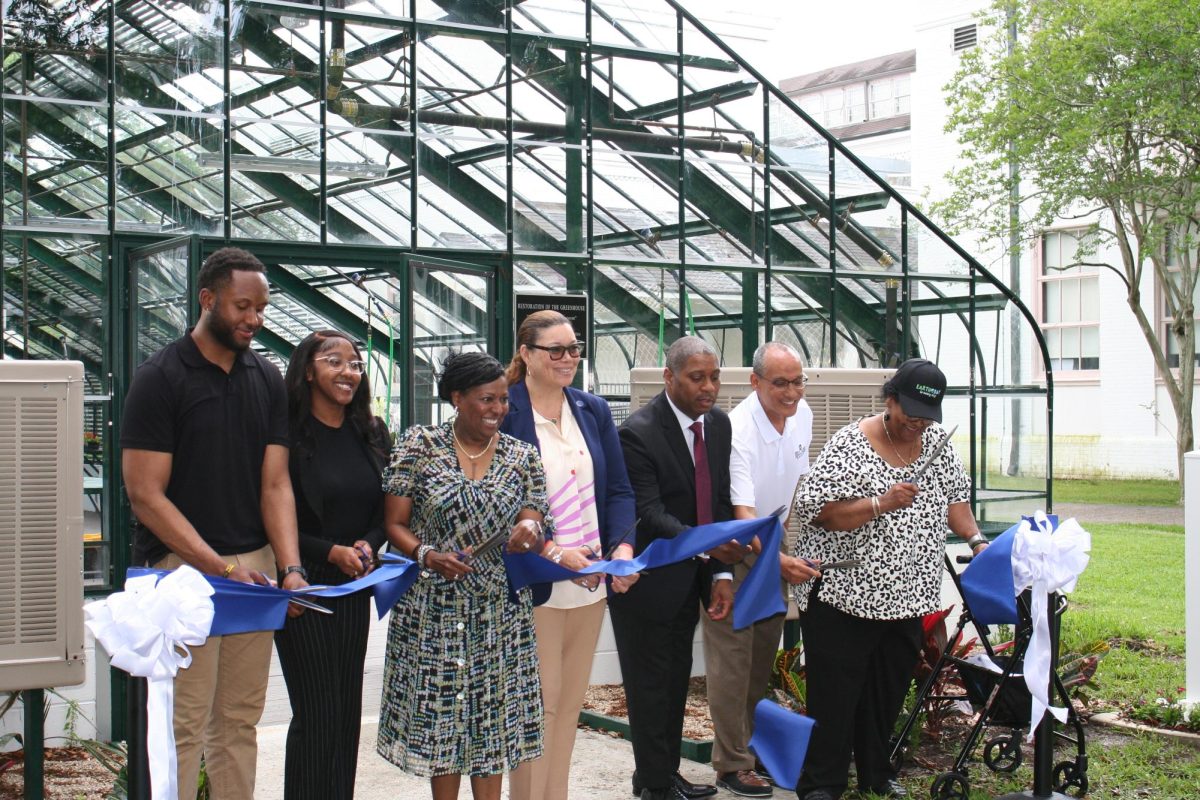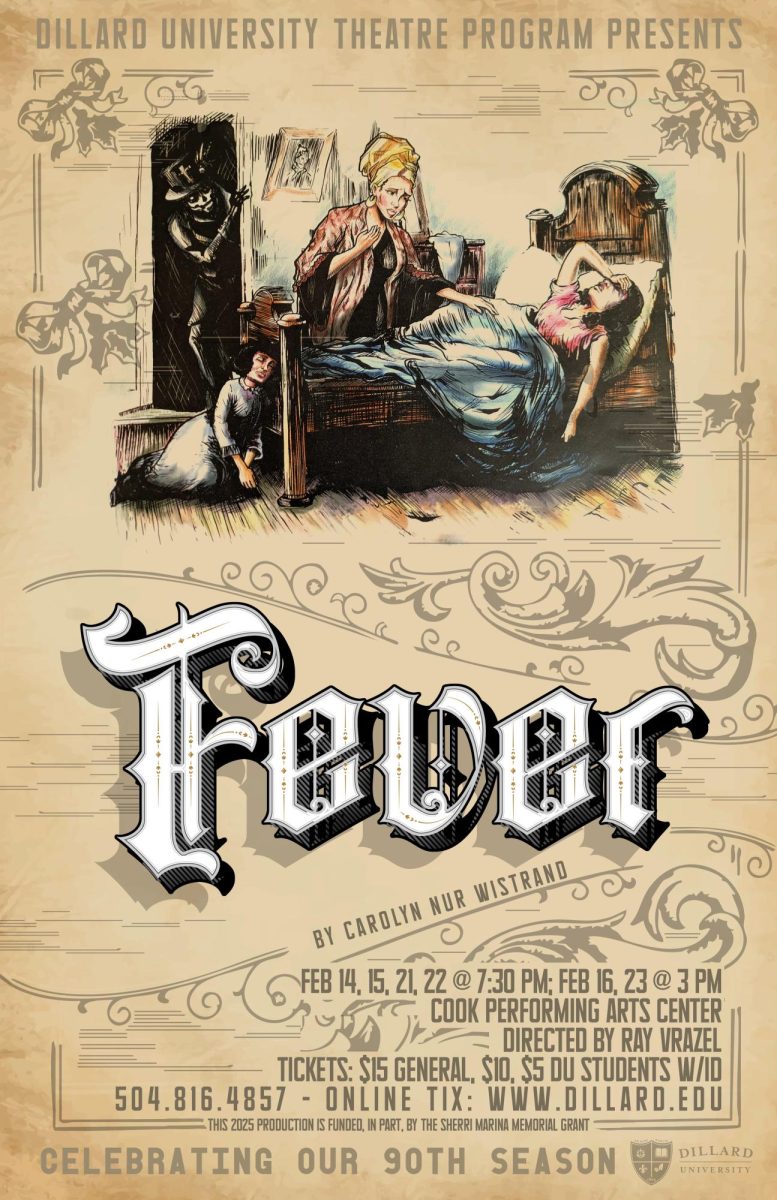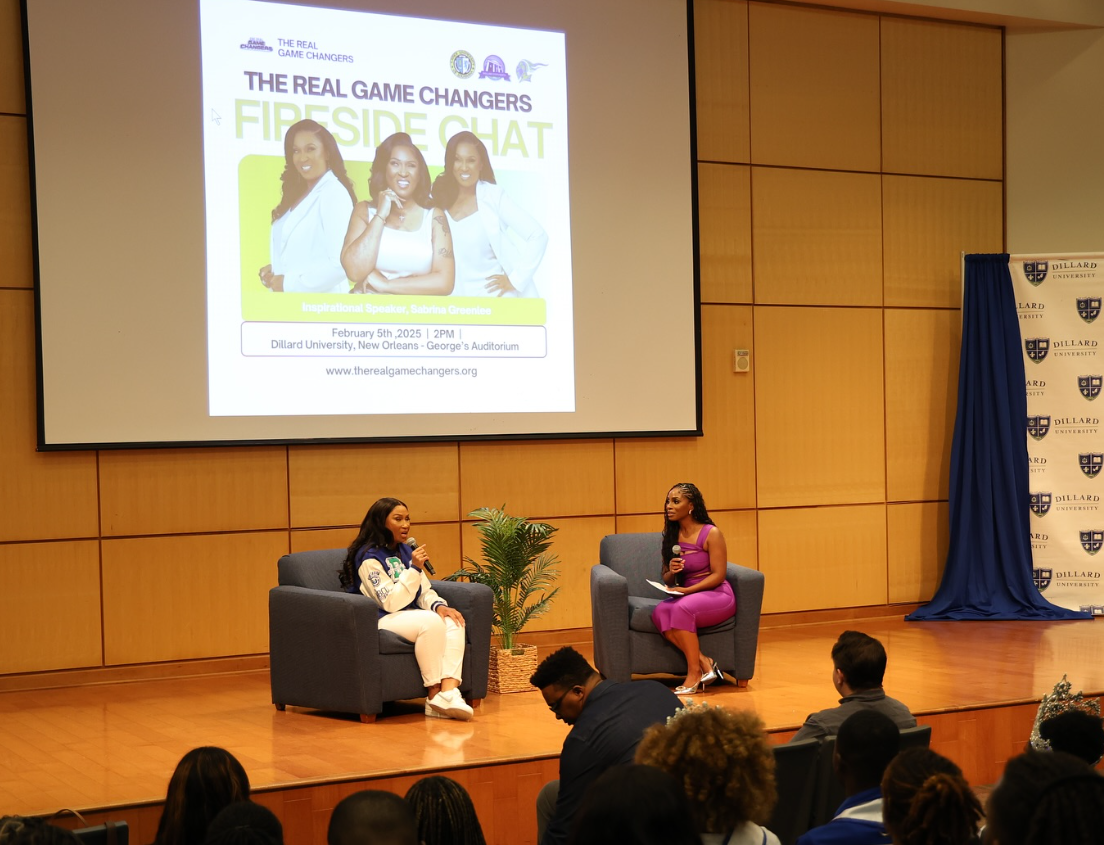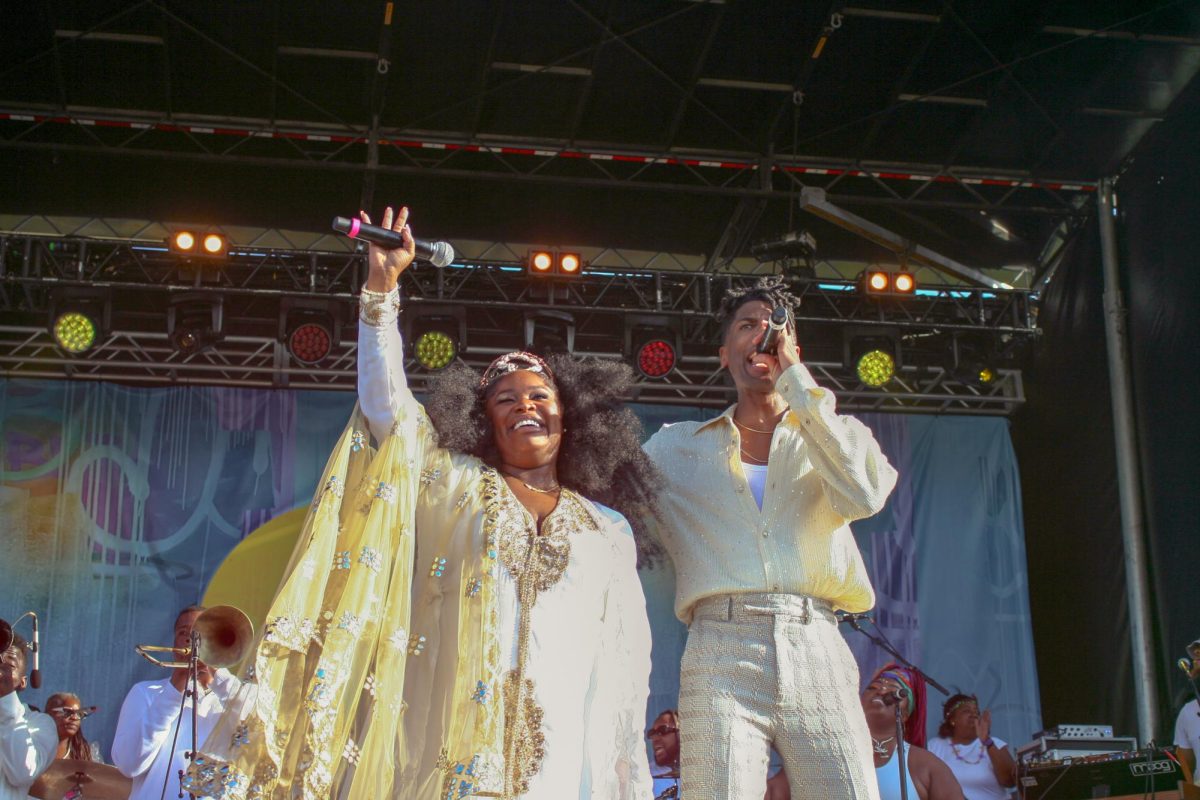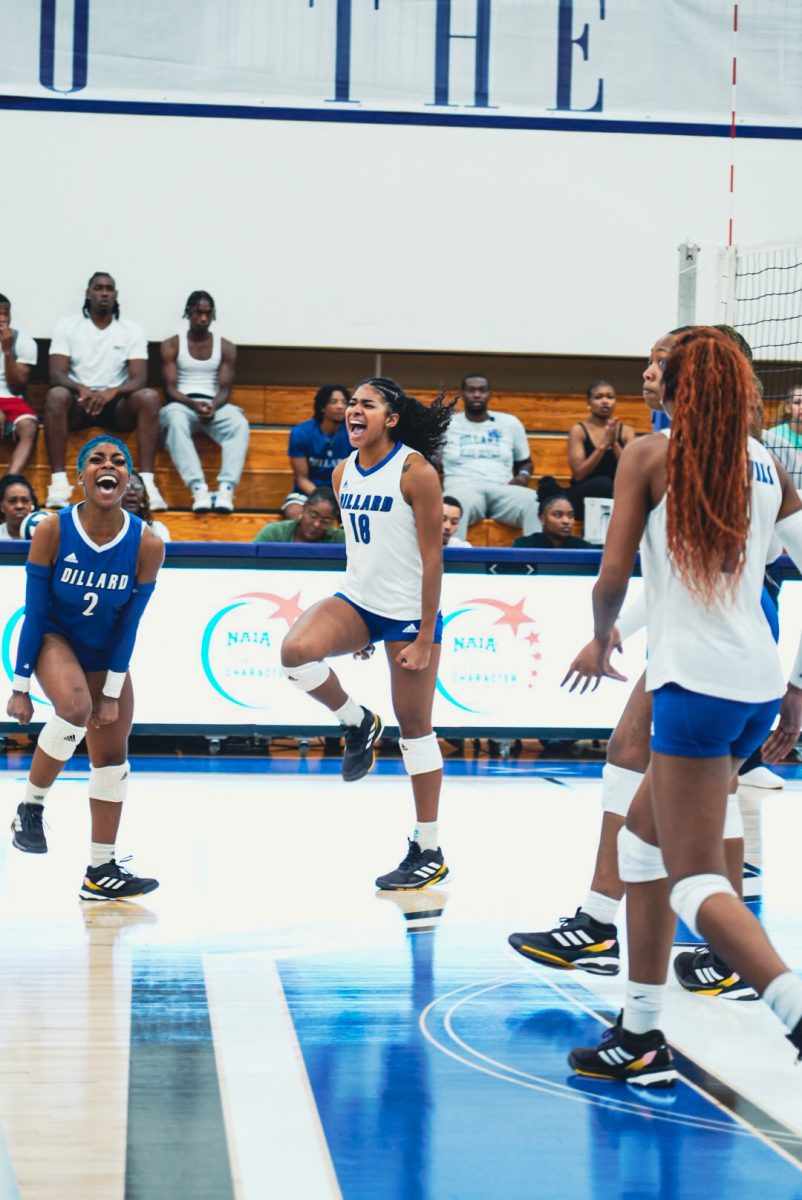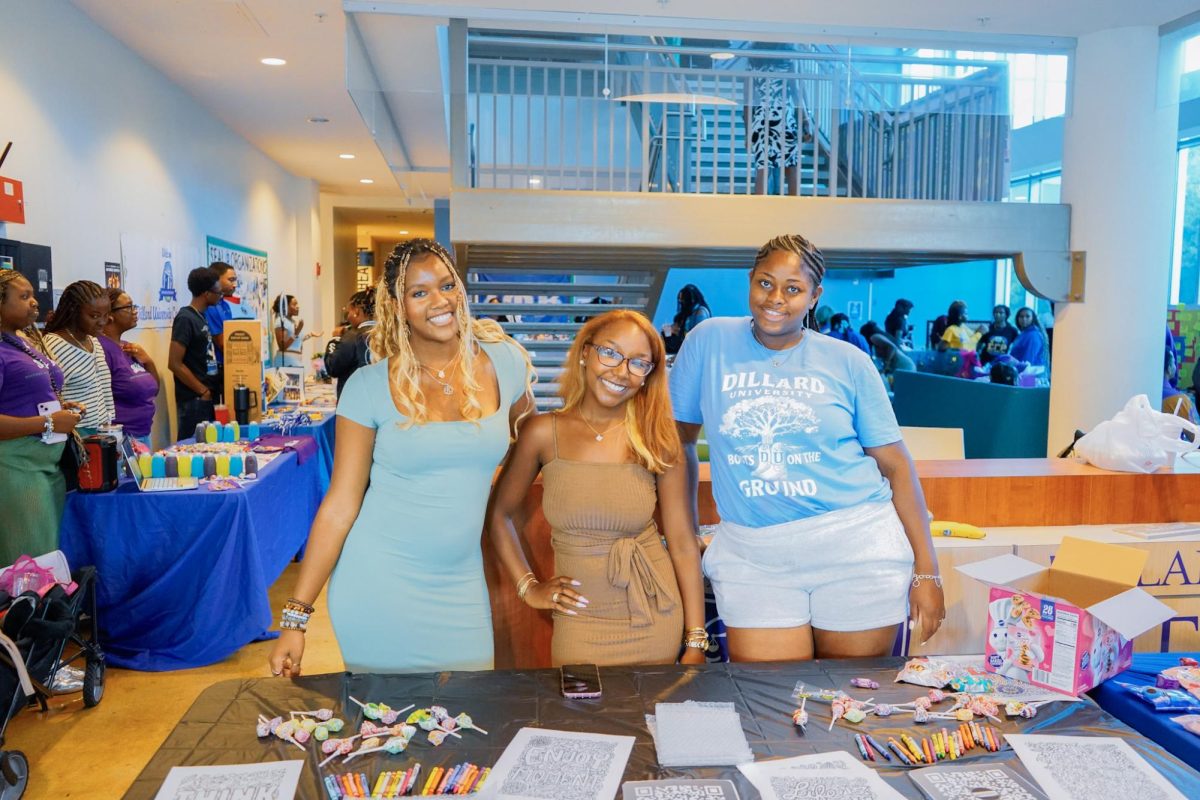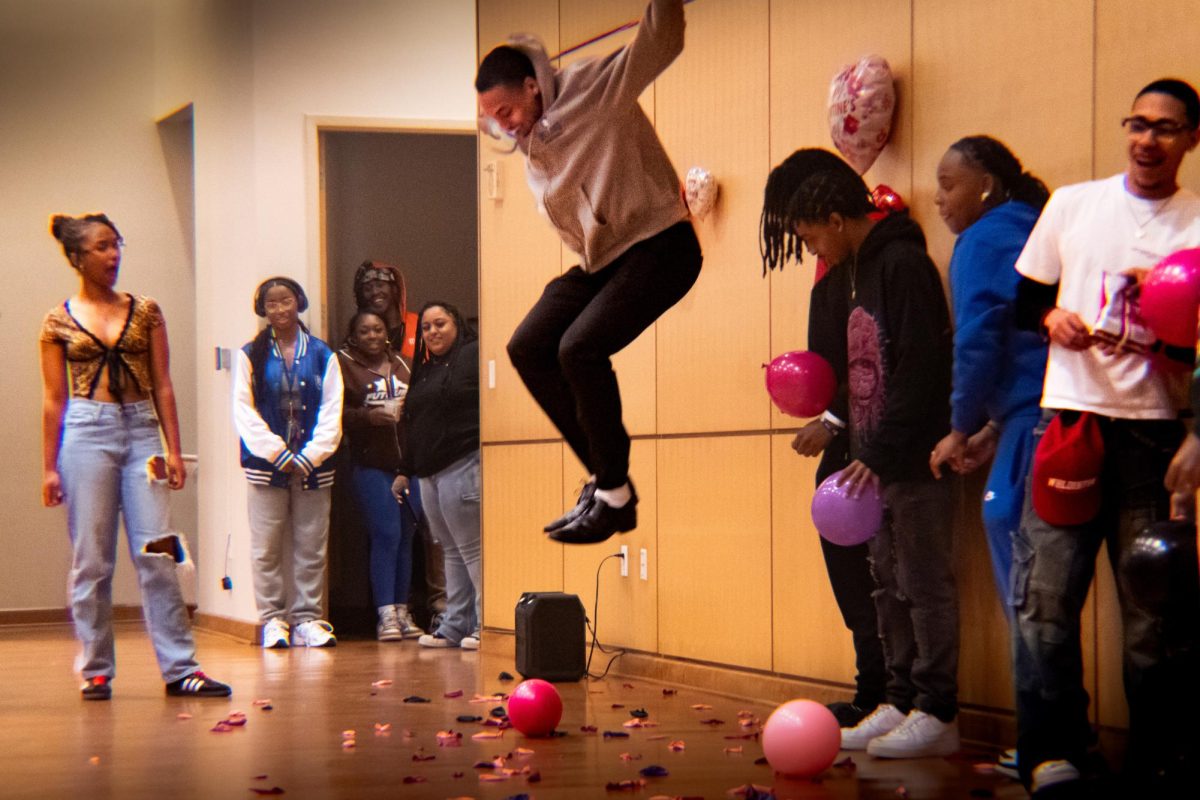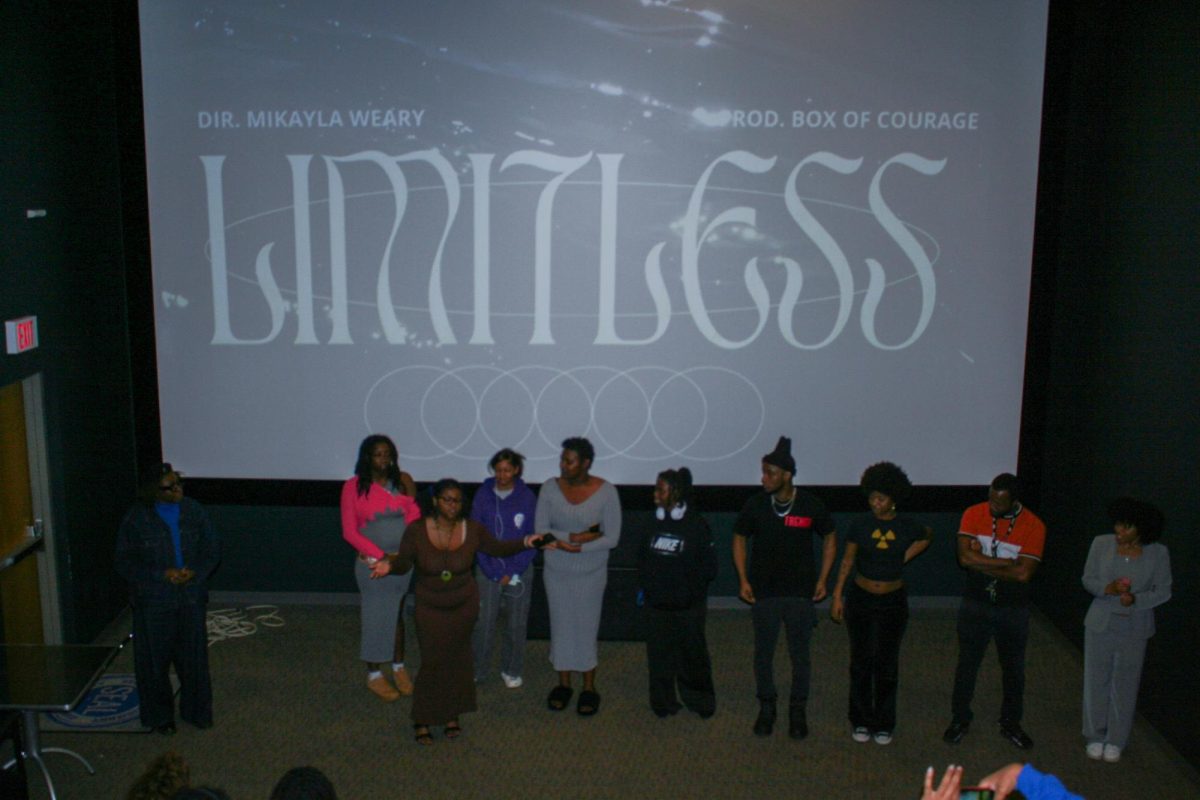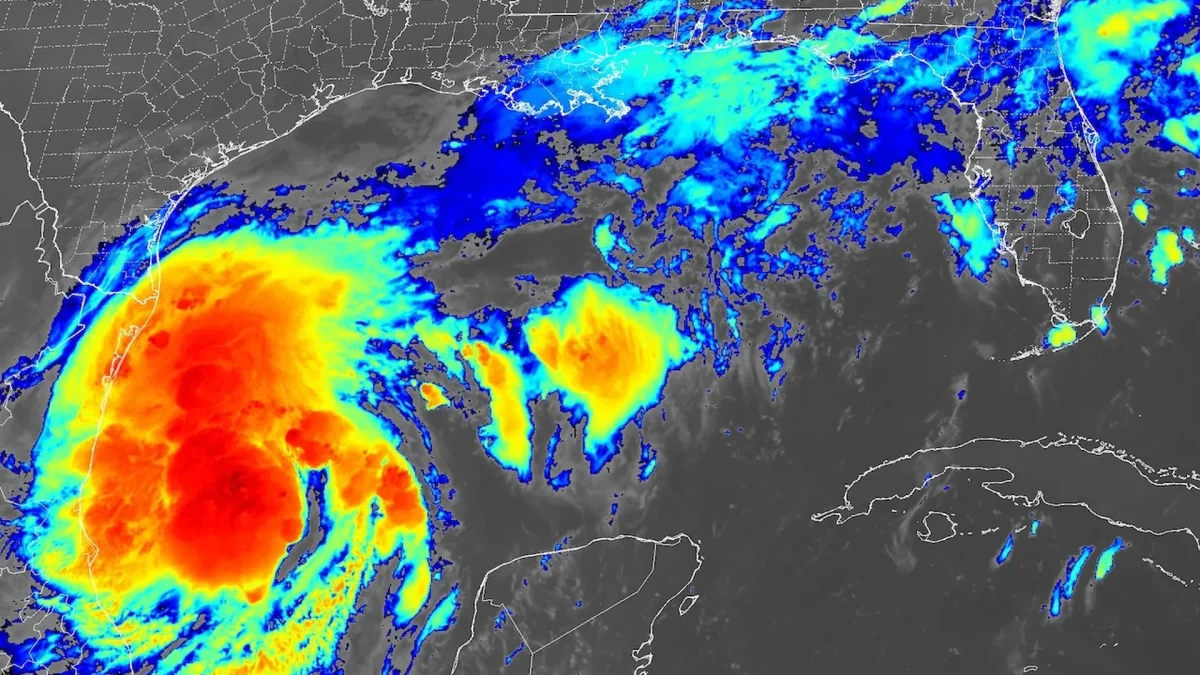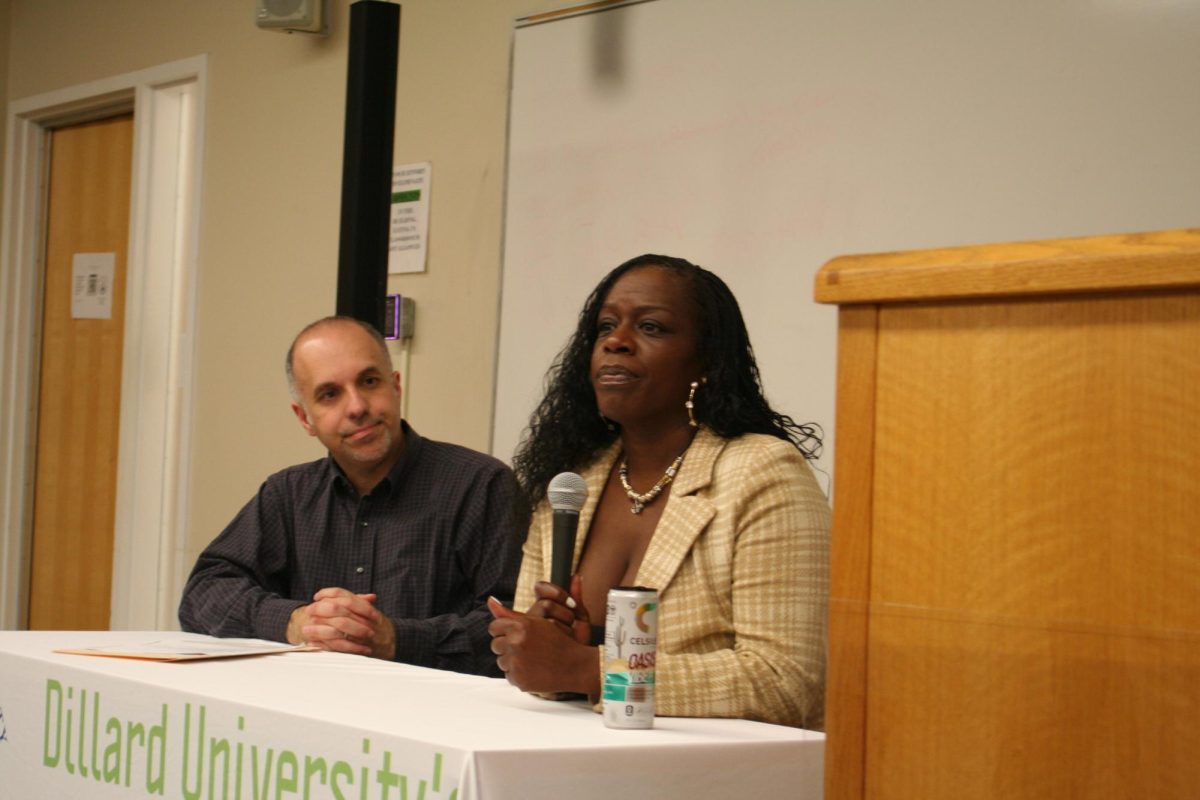
Mass communication majors Mariah Hickman and Destinee Ross interview Democratic senatorial candidate Foster Campbell after the Senate debate Nov. 2.
Photo by Rolanda Joubert/Courtbouillon
NEW ORLEANS (Nov. 10, 2016) – Dillard University made national news Nov. 2, but not in a good way, when a demonstration against infamous racist David Duke’s presence in a U.S. senatorial debate turned aggressive as students from several local universities and community members tried to get into the PSB to disrupt the debate.
The incident, which prompted six arrests for obstructing traffic (including a Dillard student), stole attention on the key issues in the race and left some DU students feeling disrespected. We must seek reconciliation among the parties on campus, but perhaps even more important, we must feel just as concerned about who wins the runoff on Dec. 10 (and it won’t be Duke), and vote again in the runoffs. Campbell and Kennedy are in the runoff.
Duke obtained 5.1 percent in a RayComm poll about two weeks, barely making the cut to allow him to debate along with four others: State Treasurer John Kennedy and Dr. Charles Boustany, a retired physician, both Republicans; and state Public Service Commissioner Foster Campbell and lawyer Caroline Fayard, both Democrats.
As Advocate reporter Lanny Keller noted, Duke has lost lot a lot more elections that he’s won – probably 10 to the one election he won. That was back in 1989, when he was elected to the Louisiana House of Representatives. He did cause a ruckus when he made the runoff against former Gov. Edwin Edwards in 1991; he lost, but claimed he had received 55 percent of the white vote.
This is the same man who was quoted in the Shreveport Times during that race as telling a forum, “I’m saying the things that all of you say in your kitchens and in your churches…I’m saying I can do something about it.”
Duke offered more of the same in the debate and afterward at DU, supporting presidential candidate Donald Trump and claiming a great conspiracy in Syria. He also wrangled with moderator John Snell about how much time he had been allowed to speak on a question.
As for the others candidates, Campbell said called Obamacare “more good than bad.” He said it reminded him of how in 1965 when Medicare came along; no one wanted it, but now everyone is glad to have it.
Fayard said Obamacare could be improved, but she was glad it helped insure more than 300,000 Louisianans.
During media questions after the debate, Fayard and Campbell were both asked what they could do to help college students repay high loans. Fayard said that students should be able to refinance their student loans just as people do their homes and car, and have easier access to the federal money that are awarded along with being given more money.
Campbell said interest rates should be lower for college loans and that when inflation goes up, so should the amount of Pell grant.
Nevertheless, the main coverage of the debate was the protesting going on outside of the building. DU student Aaliyah Wilson said students should have been made aware even if they could not attend the event.
(In fact, the university issued a statement to the campus on Oct, 22 explaining a contract made earlier in the year and providing the new information that Duke would be attending. Communications Director David Grubb followed up Oct. 26 reiterating DU’s contractual obligation and that Dillard had no input into selecting candidates for the debate. Another email from President Walter Kimbrough shared Dr. Robert Collins’s reflections on his experiences with Duke in a congressional race.)
Other students saw it differently: Terrell Allen, a public health major from New Orleans, said “We should vote and educate.” That’s what the Student Government Association had in mind by offering a debate screening in the Student Union that was well-attended but much less noticed by the media.
So where does Dillard go from here? The president has held meetings with students and faculty to seek reconciliation. And I hope you were among the students who marched to the polls for the president election Tuesday or voted on your own beforehand. And I hope no one says on Dec. 10 when the runoff is held, “Election? What election?”

